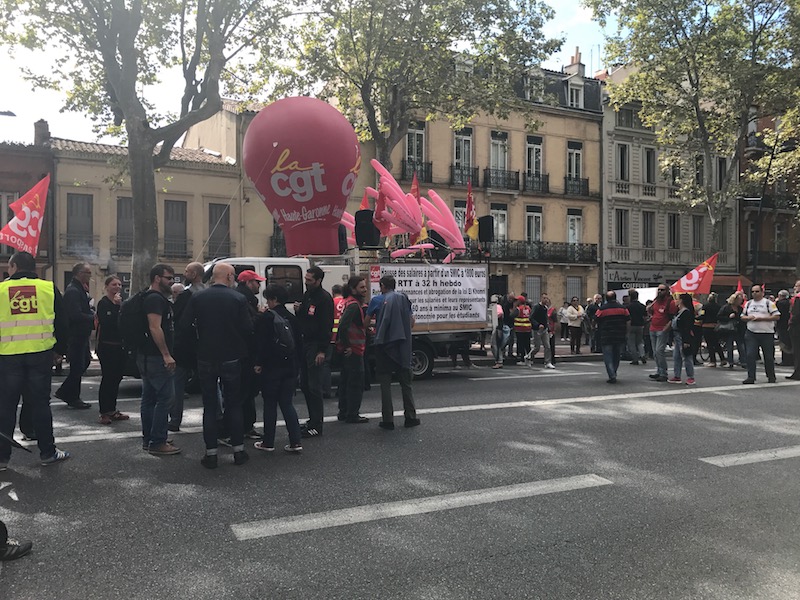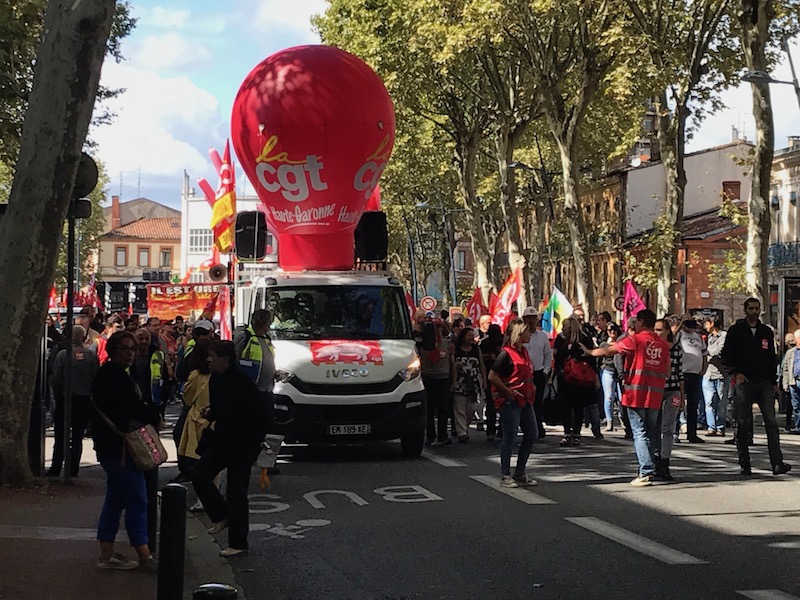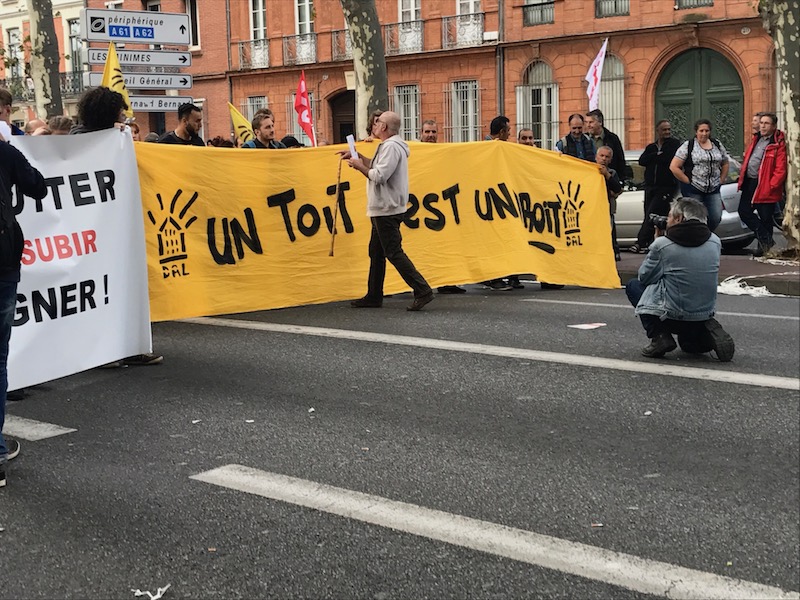Our Blog - Toulouse strike against the Code du Travail
One of the things that French President Macron had campaigned on was to reform various things, including the "Code de Travail", or the Labor Laws which defines the rules for labor relations between employers and their employees. To give you an idea of the complexity of this ... 3,324 pages long including 170 pages governing firings, 420 regulating health and security, 50 on temporary work and 85 on collective negotiations. Hundreds more are devoted to wages, specific industries and overseas departments. Unions and employees want to keep them, as they are some of the best employee protections in the world. The Employers want to change them, since it makes it expensive to hire new employees and very difficult (and expensive) to fire them. Many believe that these need "loosened" to get employers to be more willing to hire new employees since today, they are not keen on hiring new employees since it is REALLY hard to get rid of them. But with unemployment in France hovering around 10%, something needed to be done.
Needless to say, some of the unions are not happy and have been having strikes and protests. One of the strikes started just around the corner from our apartment, and so we headed over to get a peek at them. We took several pictures of random sections and signs. The CGT specifically has been very vocal in their opposition while the more moderate unions, like the CFDT, have not been quite as vocally against it. Amongst the politicians, the far left France Insoumise (led by Melenchon) is against the reforms and also is having protests, while the right and center-left parties have backed the reforms.










There was definitely a police presence around, at every corner there were 3-4 armed police. While not in "full" riot gear, they had some amount of protective gear on, over and above what normal patrols wear.

So enter President Macron. He signed into law about 160 pages of "executive orders" that make changes to the Code du Travail. Seems that the strikes and protests really didn't have much effect since he went ahead and signed the changes into law. So what is in the law? To me, nothing really earth-shattering. It gives small companies more freedom to negotiate working conditions with their employees. There is a cap on compensation awards for unfair dismissal (which I think is fine), but slightly increases the severance pay for employees. Multinational companies whose French operations are struggling will find it easier to lay off people, even if they are making profits in other countries. The workers that were made redundant will receive higher payouts.